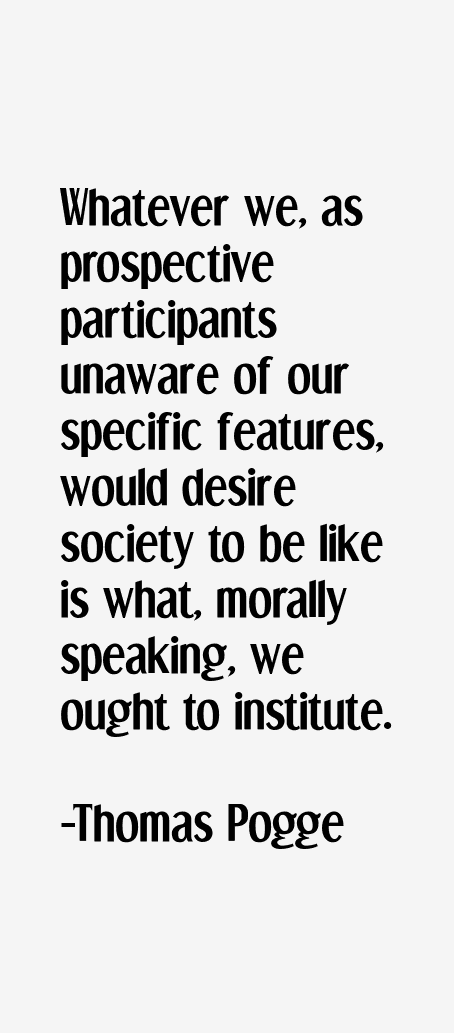Thomas Pogge Quotes & Sayings
9 most famous Thomas Pogge quotes and sayings (philosopher).
“It's easy to complain that pharmaceutical companies place profits over people and apparently care more about hair loss than TB. However, many in the pharmaceutical industry would be glad for the opportunity to reorient their research toward medicines that are truly needed, provided only that such research is financially sustainable.”

“It seems far-fetched, even preposterous, to blame the global economic order for the persistence of severe poverty in countries that are ruled by obvious thugs and crooks.”
“The stunning thing about the world as it is, is that we have a tremendously large problem in it: namely, one-third of all human deaths, 80-million every year from poverty-related causes, trivial diseases and so on, and stunningly, nobody is really paying attention to it.”
“By seeing the problem of poverty merely in terms of assistance, we overlook that our enormous economic advantage is deeply tainted by how it accumulated over the course of one historical process that has devastated the societies and cultures of four continents.”
“If I were surrounded by angels who were purely rational and had no inclinations at all, I couldn't do anything for them. I couldn't make them happy; I couldn't make them sad, I would be entirely useless as a moral agent.”
“We citizens of the affluent countries tend to discuss our obligations toward the distant needy mainly in terms of donations and transfers, assistance and redistribution: How much of our wealth, if any, should we give away to the hungry abroad?”
“Medicines are unusual commodities. Important drugs can save the lives and protect the health of millions. Their consumption can bring huge benefits, by helping patients to avoid infection and preventing serious damage to the economies of families, nations and even humanity at large.”
“The cost of research, development and testing of a new drug is vastly greater than the cost of each dose produced. How should we pay for new medicines? Innovators should be rewarded according to the impact of their medicine, and people should contribute to these rewards according to their ability to pay.”

“Whatever we, as prospective participants unaware of our specific features, would desire society to be like is what, morally speaking, we ought to institute.”
Thomas Pogge Quotes Rating
No Ratings Yet
Leave A Comment
























